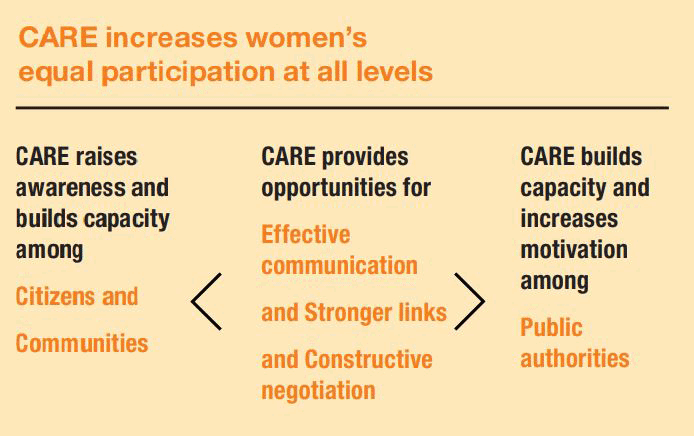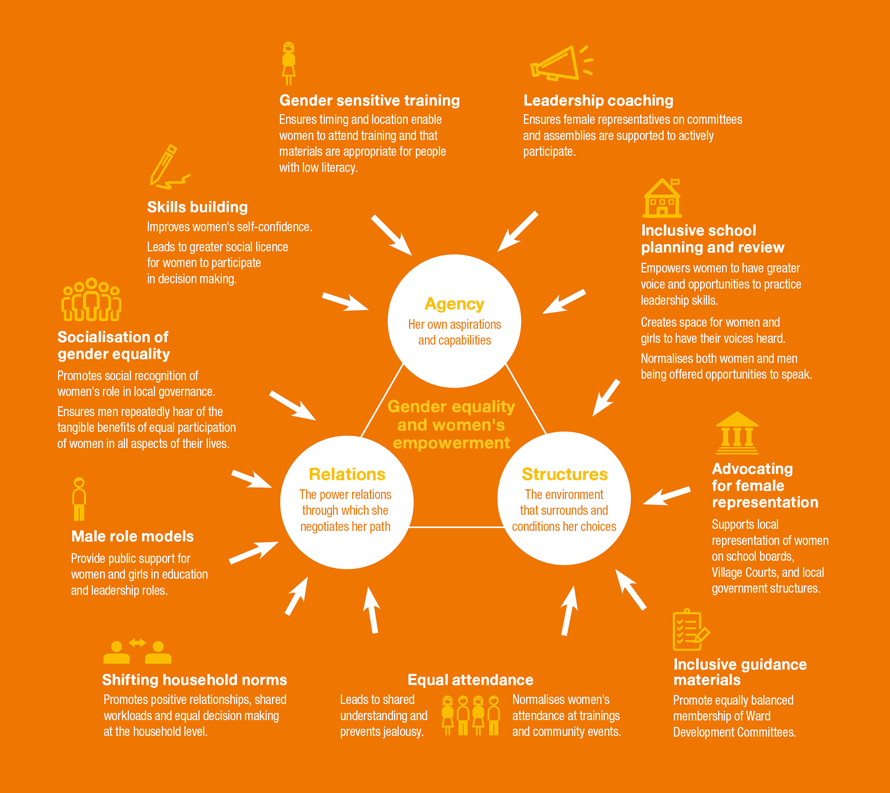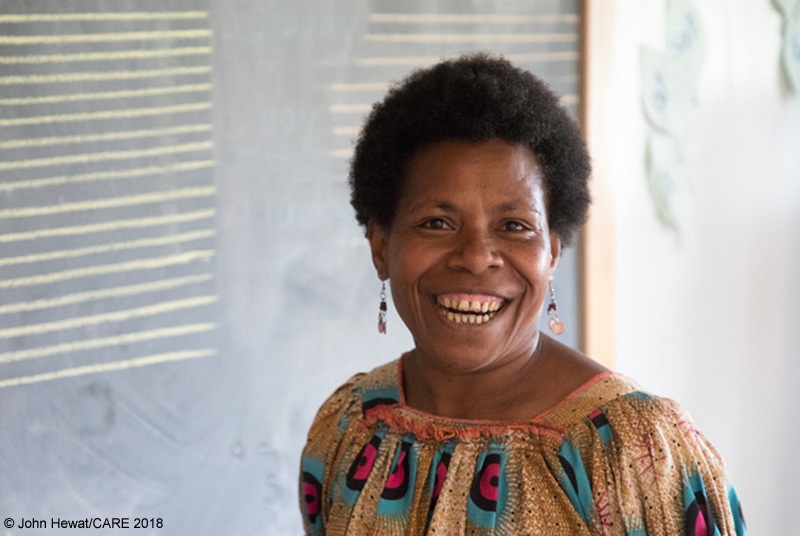Since 2010, CARE has worked on improving governance and education in three provinces in Papua New Guinea and the Autonomous Region of Bougainville at varying degrees of intensity within long-term complex and large rural development governance projects.
CARE engaged with both supply and demand sides to create neutral spaces for constructive communication. Building capacity at community and government level provided opportunity to promote equal participation.
Increasing women’s equal participation

Figure 1: CARE’s engagement model
The reports highlight the value of engagement with women and men at all levels—from household to local government—in order to support equitable and effective participation.
Our approach in working with communities in Papua New Guinea provides a helpful case study to demonstrate the value of integrating gender equality approaches within inclusive governance programming.

Figure 2: CARE’s Gender Equality Framework
Learnings from integrating gender equality in inclusive governance programming
1) Women gain agency through training and education
Gender-sensitivity in all training programmes is vital for ensuring women are able to attend and participate.
In Papua New Guinea, a woman perceived as possessing higher levels of education gains respect, which in turn means her voice is more valued and she has greater social licence to participate in local governance processes. Therefore, a woman’s participation in training often legitimises her engagement in governance processes and leadership positions due to the perception that she has increased skills and education.
Once women hold positions on ward development committees, community governments, local level government assemblies and district development authorities, complementary training and coaching can further support them as they step into new leadership roles.
2) Shifting gender relations in the home is the first step
A focus on the practical benefits of gender equality at household and community level helps to socialise the value of equal participation.
Starting with the power relations a woman must negotiate in her home is found to be a crucial step, focusing on household-level interactions such as workloads and decision-making. We found that without incremental shifts in the social contract between men and women within the household, women’s ability to have an active and valued role in how their communities are governed is significantly challenged.
This led to CARE prioritising equal attendance across all programme activities. Engaging men by promoting, or even requiring, joint attendance can also prevent jealousy caused by a perception that women are benefiting and men are not, while men providing public acclamation for women who are taking on leadership roles recognises women as active and valuable participants in local governance.
3) Gender inclusive structures leads to women’s participation
Improving local governance necessarily involves engagement with local structures. Working through these structures, especially when women’s participation is a requirement presents an ideal opportunity for normalising women’s involvement in systems and processes.
The government of Papua New Guinea mandates that at least two women sit on each ward development committee across the country. The Bougainville Community Government Act stipulates that there must be one male and one female representative in each ward, and that the leadership roles for each community government must rotate between male and female representatives. Raising awareness of these requirements, advocating for the benefits of balanced representation, and promoting equal participation across school boards of management, village courts and other local government structures creates more opportunities for women to engage in their communities.
Beyond simply normalising attendance, the focus on women and men having equal opportunity to engage ensures women’s participation is meaningful and creates space for women’s voices to be heard.
Want to learn more?
Read the full report and summary document.
CARE acknowledges the support of the Australian Government for the projects analysed in these reports, including through the Australian NGO Cooperation Program (ANCP).



